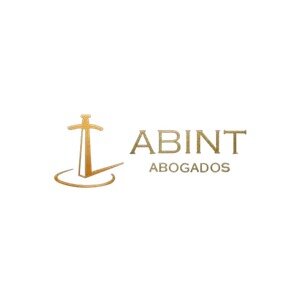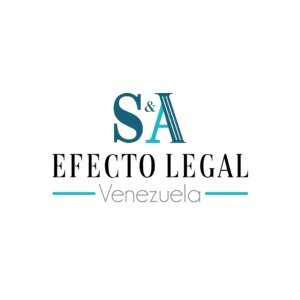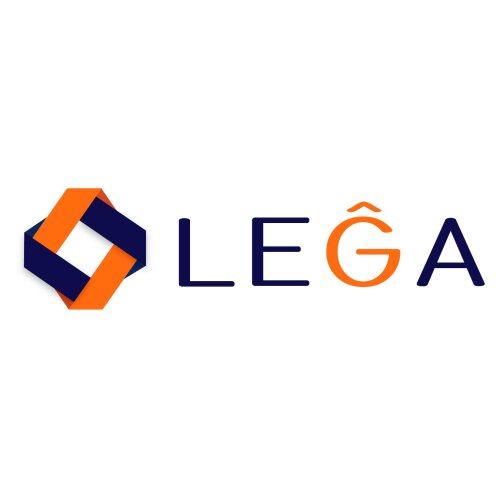Best Energy, Environment & ESG Lawyers in Venezuela
Share your needs with us, get contacted by law firms.
Free. Takes 2 min.
Or refine your search by selecting a city:
List of the best lawyers in Venezuela
About Energy, Environment & ESG Law in Venezuela
Energy, Environment & ESG (Environmental, Social, and Governance) law in Venezuela refers to the legal framework that governs activities related to natural resources, environmental conservation, and sustainable business practices within the energy sector and beyond. Venezuela, being rich in oil, gas, and minerals, has developed extensive regulations to manage resource extraction, environmental protection, and corporate responsibility. ESG principles are becoming more prominent as businesses and investors increasingly recognize the importance of environmental stewardship, social responsibility, and governance transparency. Venezuelan laws set standards for companies to comply with environmental norms, ensure social inclusion, and promote good governance, particularly in sectors with significant environmental impacts such as oil and gas, mining, and heavy industry.
Why You May Need a Lawyer
Navigating Energy, Environment & ESG matters in Venezuela can be complex due to frequent regulatory changes, administrative procedures, and the high stakes involved in compliance. You may need a lawyer if you are:
- Starting or operating a business in the energy or natural resources sector
- Dealing with environmental permits or assessments for projects
- Responding to environmental accidents, spills, or contamination claims
- Negotiating contracts with state-owned companies or international partners
- Facing inspections, enforcement actions, or sanctions by environmental authorities
- Implementing ESG strategies to attract investment or meet international standards
- Participating in community engagement or social impact assessments
- Seeking to understand your rights and obligations under evolving local laws
- Resolving disputes regarding land use, water rights, or indigenous communities
- Ensuring transparency and anti-corruption compliance within your operations
A legal specialist can help interpret regulations, manage risks, secure required permits, and represent your interests in legal or administrative proceedings.
Local Laws Overview
Venezuela has a comprehensive legal system governing energy production, environmental conservation, and ESG compliance:
- Energy Laws: The state is the primary owner and regulator of hydrocarbons and minerals. Key laws include the Organic Hydrocarbons Law, the Organic Gas Law, and regulations on renewable energy, granting the government control over exploration, production, and commercialization.
- Environmental Laws: The Organic Law of the Environment and related regulations set the framework for environmental protection. This includes mandatory environmental impact assessments, pollution control, waste management, and biodiversity preservation. Specific regulations apply to water, air quality, and hazardous substances.
- ESG Regulations: While not always labeled as ESG, Venezuelan laws are evolving to encourage responsible business conduct. Requirements for labor practices, anti-corruption, transparency in procurement, community engagement, and corporate governance are increasingly important, especially for companies seeking international partnerships or financing.
- Administrative Procedures: Projects often require prior approvals, oversight from regulatory agencies such as the Ministry of Popular Power for Ecosocialism and the Ministry of Petroleum, and regular compliance reporting.
- Penalties: Non-compliance can result in fines, suspension of operations, remediation orders, or, in serious cases, criminal liability for company officers.
Overall, local laws are detailed and have significant implications for stakeholders involved in energy and environmental activities.
Frequently Asked Questions
What is the main regulatory body overseeing environmental matters in Venezuela?
The Ministry of Popular Power for Ecosocialism is the primary authority responsible for enforcing environmental laws and issuing permits in Venezuela.
Do I need environmental permits for my project?
Yes. Most projects that could impact the environment require environmental impact assessments and specific permits before starting activities. Failure to obtain these permits can lead to sanctions.
How are hydrocarbons and minerals regulated?
Hydrocarbons and minerals are state-owned resources. The government grants licenses, and all operations must comply with the Organic Hydrocarbons Law, including requirements for local content, social contributions, and environmental protection.
What are common environmental offenses in Venezuela?
Common offenses include illegal waste disposal, operating without environmental permits, exceeding pollution limits, unauthorized deforestation, and failing to remediate environmental damage.
Are there ESG reporting obligations for companies?
ESG-specific reporting is not mandatory for most companies, but compliance with environmental, labor, and anti-corruption regulations is required. International investors may request ESG disclosure from Venezuelan companies.
What are the penalties for non-compliance with environmental laws?
Penalties can include fines, operational suspensions, mandatory cleanup orders, and, in some cases, criminal prosecution of responsible individuals.
How do land use and indigenous rights impact energy projects?
Projects on indigenous or protected lands require prior consultation with affected communities and special permits from relevant authorities. Failing to comply with these requirements can halt projects.
Can foreign investors participate in Venezuela's energy sector?
Yes, but often only through joint ventures or special agreements with state-owned enterprises. Legal advice is essential to navigate the regulatory framework.
What is an Environmental Impact Assessment (EIA)?
An EIA is a study that evaluates the potential environmental effects of a planned project. It is a requirement for many industrial, mining, or energy-related activities prior to obtaining legal authorization.
How can a lawyer assist in ESG compliance?
A lawyer can guide companies through legal requirements, assist in drafting compliance policies, coordinate with authorities, manage due diligence for investments, and represent clients in case of disputes or enforcement actions.
Additional Resources
If you need more information or support regarding Energy, Environment & ESG in Venezuela, consider reaching out to:
- Ministry of Popular Power for Ecosocialism - Environmental regulations and permits
- Ministry of Petroleum - Licenses and oversight for hydrocarbons activities
- National Assembly and Official Gazette - Updates on laws and regulations
- Venezuelan Association of Environmental Law
- Venezuelan Chamber of Industry and Commerce
- Non-governmental organizations focused on environmental protection
- International bodies such as United Nations Environment Programme for regional guidance
Next Steps
If you require legal assistance in Energy, Environment & ESG in Venezuela, consider the following steps:
- Identify your specific legal needs or concerns related to your business or project
- Consult with a qualified attorney who specializes in energy, environmental, or ESG matters
- Prepare all relevant documentation, such as permits, contracts, or correspondence with authorities
- Request a comprehensive legal review to identify compliance gaps or potential risks
- Follow the lawyer’s recommendations regarding permits, negotiations, or remediation actions
- Stay updated on changes in local laws and maintain open communication with regulators
Taking these proactive steps can help you manage legal risks, ensure regulatory compliance, and achieve sustainable business success in Venezuela’s evolving Energy, Environment & ESG landscape.
Lawzana helps you find the best lawyers and law firms in Venezuela through a curated and pre-screened list of qualified legal professionals. Our platform offers rankings and detailed profiles of attorneys and law firms, allowing you to compare based on practice areas, including Energy, Environment & ESG, experience, and client feedback.
Each profile includes a description of the firm's areas of practice, client reviews, team members and partners, year of establishment, spoken languages, office locations, contact information, social media presence, and any published articles or resources. Most firms on our platform speak English and are experienced in both local and international legal matters.
Get a quote from top-rated law firms in Venezuela — quickly, securely, and without unnecessary hassle.
Disclaimer:
The information provided on this page is for general informational purposes only and does not constitute legal advice. While we strive to ensure the accuracy and relevance of the content, legal information may change over time, and interpretations of the law can vary. You should always consult with a qualified legal professional for advice specific to your situation.
We disclaim all liability for actions taken or not taken based on the content of this page. If you believe any information is incorrect or outdated, please contact us, and we will review and update it where appropriate.
Browse energy, environment & esg law firms by service in Venezuela
Venezuela Attorneys in related practice areas.
Browse energy, environment & esg law firms by city in Venezuela
Refine your search by selecting a city.













